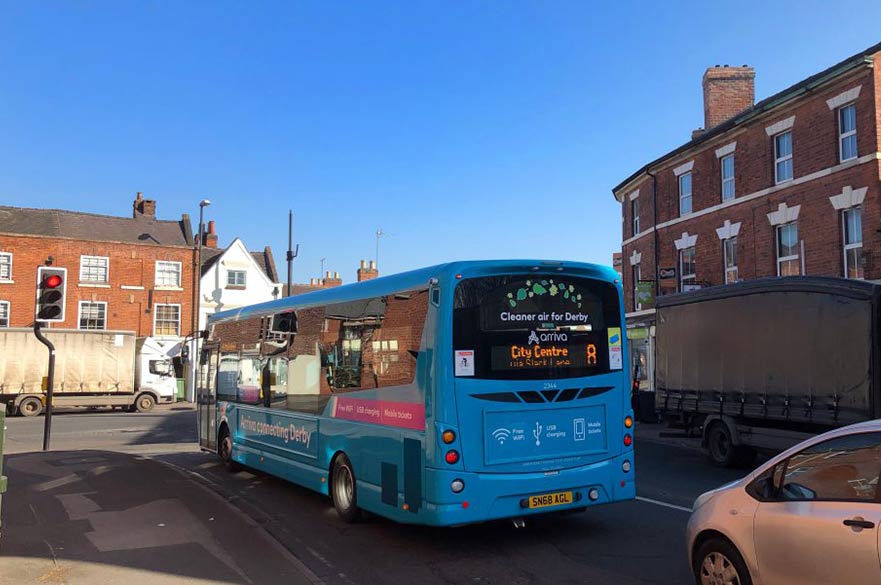Derby City Council has submitted its full business case to government, which details how it will tackle and reduce roadside NO2 emissions in the city.
The full business case puts forward a traffic and network management solution to tackle the one area of exceedance identified on Stafford Street, in response to prescribed limits determined by EU legislation.
It includes several junction design changes, and a significant modernisation of the Council’s urban traffic management system. This is now subject to the necessary approvals from the Secretary of State.
Just last week it was announced that the Council would receive an initial £4.5m of funding to allow them to proceed towards developing the implementation and contract arrangements for the outline traffic management measures.
The Council has been working with officials from the Department for Environmental, Food and Rural Affairs (DEFRA) since December 2015, to identify measures to reduce levels of Nitrogen Dioxide (NO2) emissions from vehicles, in the shortest possible time and deliver compliance with legal air quality limits.
Verna Bayliss, Acting Director of Planning and Transportation said:
We have given this the highest priority and have been dedicated to meeting the deadlines of the December Ministerial Direction. The submission of the full business case today is the culmination of months of detailed work and I am grateful to everyone involved. We are fully committed to meeting our legal duty to reduce roadside NO2 emissions at the site of exceedance. Our full business case includes a submission to the Clean Air Fund for additional supporting measures that will also allow wider health benefits to be realised. We are confident that the traffic and network management scheme is the most appropriate solution for Derby. It will deliver the reductions needed in the shortest possible time and contribute to improving the quality of air in our city.
